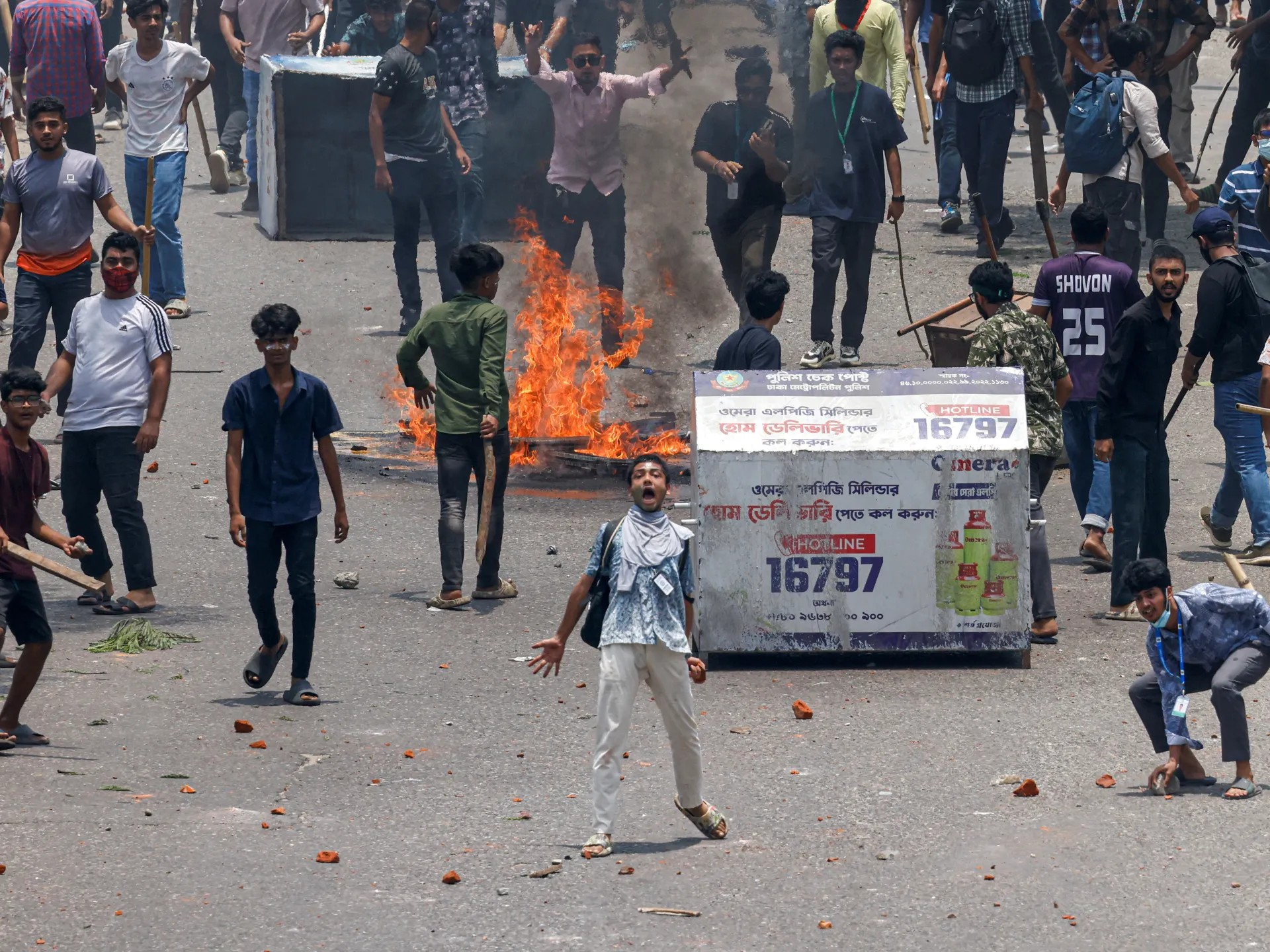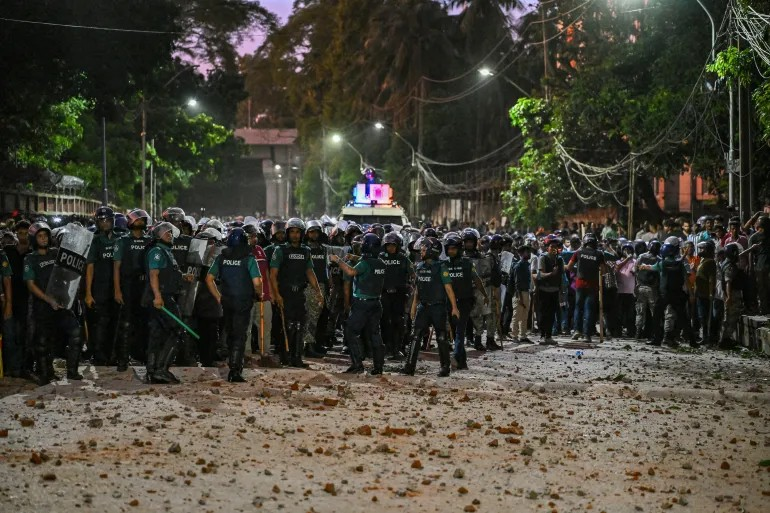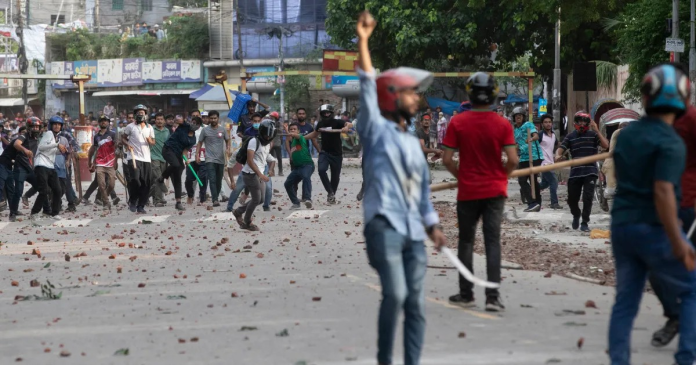Facebook Twitter (X) Instagram
Recent protests in Bangladesh against the government’s quota system for public services have evolved into a national crisis marked by escalating violence and widespread concern both locally and internationally. What initially began as peaceful demonstrations by university students and job seekers advocating for reforms in civil service recruitment quickly deteriorated into chaos across major urban centers such as Dhaka and Chittagong.
The protests took a violent turn as clashes erupted between protesters and law enforcement authorities. Reports surfaced of tear gas being deployed to disperse crowds, met with retaliation in the form of stone-throwing and street barricades from demonstrators. The intensity of confrontations swiftly escalated, resulting in injuries on both sides and significant damage to public property.

Tragically, the unrest led to fatalities as the clashes became increasingly severe. The loss of lives sparked widespread condemnation, triggering allegations of human rights abuses and excessive use of force by government forces. These incidents drew heightened scrutiny and criticism of Bangladesh’s handling of civil unrest from international observers and human rights organizations.
Internally, the Bangladeshi government faced mounting pressure to address the crisis. Calls for dialogue and restraint reverberated across the nation as critics questioned the fairness and transparency of the quota system, which allocates public sector jobs among various demographic groups. Civil society organizations and political leaders appealed for calm, urging all parties to engage in peaceful dialogue to resolve grievances and restore stability.
Beyond the immediate unrest, the protests underscored broader socio-economic challenges gripping Bangladesh. Issues such as youth unemployment, disparities in access to opportunities, and economic inequalities were brought to the forefront, reflecting deep-seated frustrations within the population.

In response to the escalating protests, the government announced measures to address the demonstrators’ demands. A commitment was made to review the quota system and conduct investigations into incidents of violence. This led to signaling a potential shift in policy and governance approach. The events sparked national debates on governance practices, social justice, and the delicate balance between affirmative action policies and merit-based recruitment in public institutions.
The nation faces critical questions about governance, accountability, and the way forward in ensuring fairness and opportunity for all citizens. The protests served as a stark reminder of the power of public dissent and the urgent need for inclusive dialogue. This is to address pressing socio-economic issues and heal divisions within society.
Moving forward, Bangladesh stands at a crossroads, grappling with the legacy of these protests. Striving to chart a path toward a more just and equitable future for its people.
Read more
In September, Bangladesh had over 390 dengue fever deaths. – Somali Magazine
Another relief special cargo airplane departs from Bangladesh bound for Turkey. – Somali Magazine

